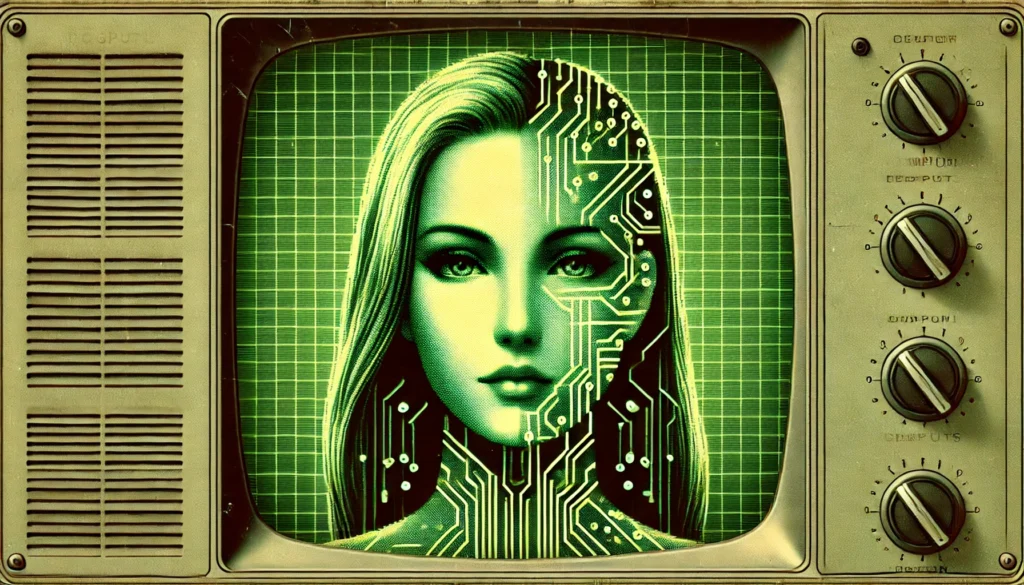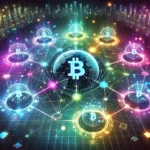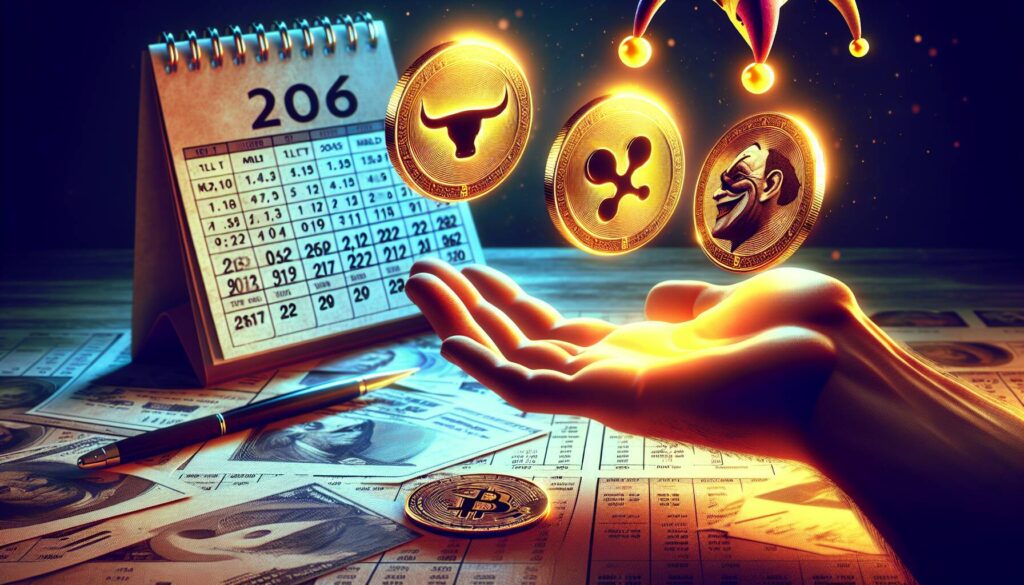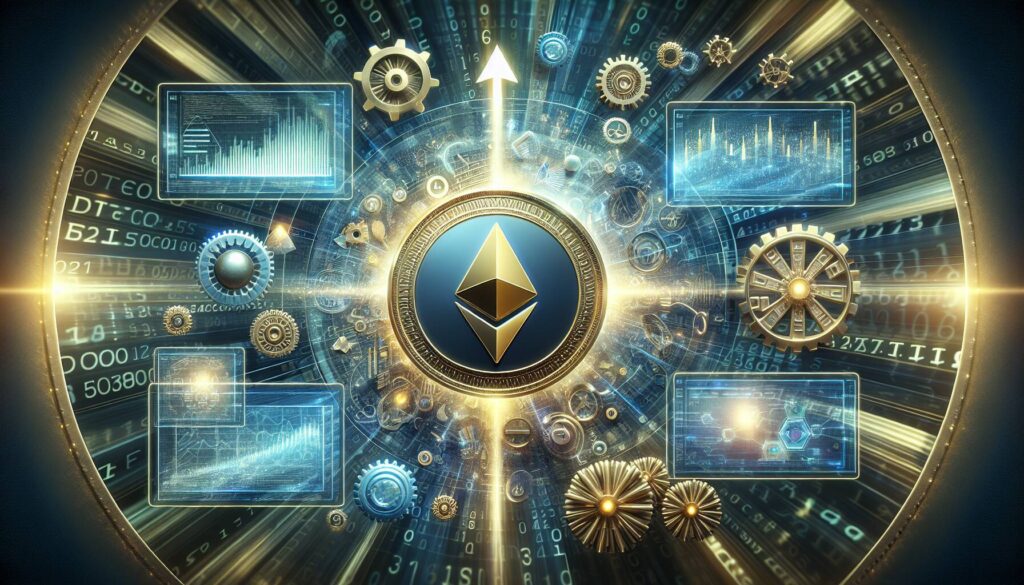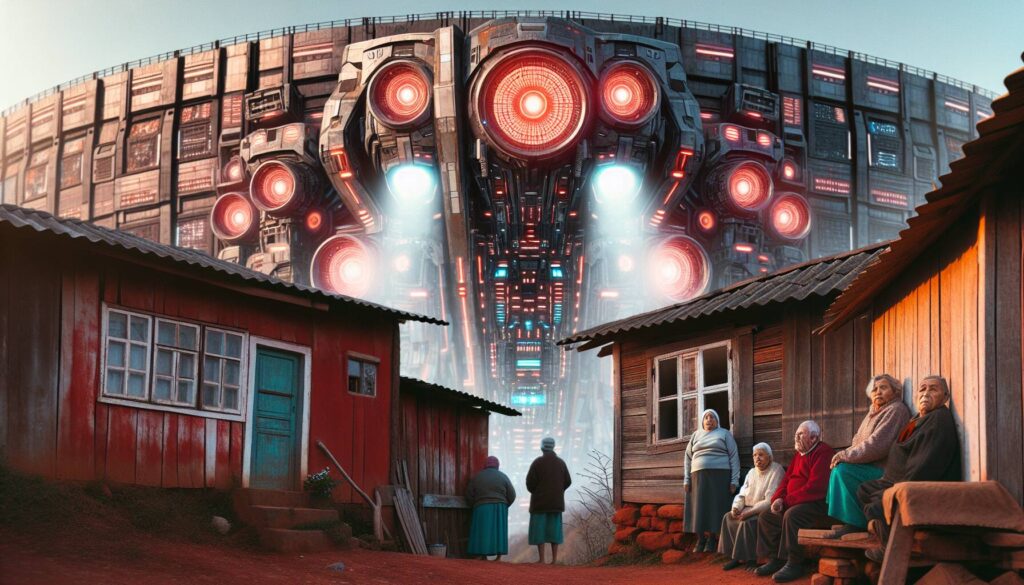As we look toward the horizon of technological advancements, it’s impossible not to feel a mix of excitement and unease. After all, change often brings with it equal parts promise and uncertainty. For anyone navigating the world of cryptocurrency, the rise of AI agents feels like one of those epochs that could redefine everything we thought we knew. But this shift doesn’t have to be daunting—it’s an opportunity to grow, innovate, and create alongside these emerging technologies.
AI agents are no longer just tools running behind the curtains of blockchain infrastructure; they are becoming front-and-center participants shaping the way the crypto world functions. Think of them as co-pilots that, while automated, learn, adapt, and seek to optimize outcomes for users in real time. And let’s be honest: if you’ve ever spent hours agonizing over intricate yield farming strategies, manually tracking trades, or missing out on trading opportunities while offline, you understand the need for something—or someone—capable of filling those gaps. These agents are here to do just that. They are more than assistants; they are collaborators in this fast-paced digital economy.
But what makes this evolution truly fascinating, and possibly reassuring, is how AI agents are being designed with human empowerment in mind. While the crypto space often feels dominated by complexity, requiring extensive learning curves, these agents are here to simplify and scale what’s possible. Imagine an ecosystem where you no longer need to be a blockchain expert to interact with decentralized applications (dApps) or engage with decentralized finance (DeFi). By transferring routine or high-stakes tasks—like optimizing liquidity pools or making strategic trades—to well-trained agents, users are liberated to focus on strategy, creativity, and innovation.
The role of AI agents isn’t just about convenience, though. It’s about inclusion. Many people feel overwhelmed or excluded by the complexities of decentralized systems, and for good reason—the cryptosphere can be as unintuitive as it is transformative. AI agents make this new frontier more accessible, enabling a broader range of people to contribute and participate meaningfully. By taking over technical burdens and making decisions guided by algorithms that improve over time, these bots bring crypto closer to universal usability.
Moreover, the evolving autonomy of AI agents signals a seismic shift in how we view participants in the blockchain economy. Where once the ecosystem was populated by human actors (traders, miners, developers, and so on), AI agents are now stepping into roles that mirror—or even exceed—human capabilities in scope and precision. These aren’t static scripts or bots designed for narrowly defined tasks. Instead, many agents today are capable of iterating on their knowledge and functioning as intelligent, evolving nodes within a decentralized network.
For the skeptics among us, it’s entirely natural to wonder: “Are we losing something here? Will this take human involvement out of the equation?” Not at all. If anything, AI agents redefine what involvement means, allowing people to focus their time and energy on the areas where human ingenuity, creativity, and emotion truly make a difference. It’s not about erasing the human touch—it’s about enhancing it.
And for those who worry about trust—whether these agents will operate ethically, reliably, or transparently—know that you’re not alone in this concern. There’s a growing emphasis among developers to prioritize accountability and safeguards in agent deployment. Permissionless environments like blockchain—quintessentially transparent and open source—act as the perfect substrate for implementing checks and balances to keep these agents truthful and aligned with user goals.
Yes, we’re stepping into uncharted territory, and yes, that can be daunting. But don’t take this as a reason for fear; take it as a call to step forward with curiosity, to explore an era in which AI and crypto align to grant greater possibilities to individuals like you and me. Sure, the AI agents may be transforming the crypto landscape, but ultimately, their guiding light remains the same: empowering their human counterparts every step of the way. The question now is not whether AI agents will redefine the crypto space—they already are. Instead, the question is how each of us will choose to harness this opportunity to redefine our own role within it.
Some of the most captivating uses of AI agents are unfolding where creativity meets utility—places where these intelligent tools not only streamline operations but also inspire entirely new ways of engaging with blockchain technology. Imagine having the ability to deploy an AI agent that can enhance decision-making, amplify personal productivity, or even fundamentally change the dynamics of a community or marketplace. These applications are as innovative as they are practical, and they offer glimpses into the tremendous potential AI agents hold to revolutionize the crypto ecosystem.
One area where AI agents are driving groundbreaking innovation is the realm of personalized finance. Traditional financial tools demand hours of analysis, pattern recognition, and strategic planning from users who are juggling volatile markets. AI agents elegantly tackle this challenge by offering real-time, adaptive solutions tailored to individual needs. For instance, some agents are now capable of executing sophisticated arbitrage trades, adjusting DeFi staking positions dynamically based on market conditions, or even automating intricate multi-layer yield farming strategies. This goes far beyond mere automation—it’s about providing intelligent financial companionship that evolves with users and helps them reach financial goals faster, without the stress of monitoring the minutiae themselves.
Another burgeoning use case lies in decentralized identity and reputation systems. In a world dominated by pseudonymity, trust can sometimes feel out of reach. Leveraging blockchain’s transparency, AI agents are now integrated into smart contract systems to help users build and assess trust within decentralized environments. Picture an AI agent that can vet counterparties in real time, pulling decentralized credit histories or validating wallet interactions to ensure authentic behavior before a transaction or collaboration takes place. This not only mitigates risks but also makes it easier for communities to grow and for individuals to establish enduring credibility in decentralized ecosystems.
Gaming and digital art are also experiencing unprecedented waves of innovation due to AI agents. We’re seeing these agents take on roles that range from creating original in-game assets, fine-tuning gameplay mechanics, and even running the economies in virtual worlds. For games powered by blockchain, agents bring depth by performing tasks like managing resources or setting dynamic pricing for marketplace items. The Echelon Prime ecosystem is an excellent example, where AI agents enhance the gaming experience by not only acting as virtual managers in complex strategies but also helping to shape in-game storytelling based on real-world data and player behavior. The result is a richer, more immersive experience, blending human creativity with algorithmic precision.
Then there are AI-driven community bots, which are quietly transforming how people interact in decentralized social platforms. These agents go beyond simply moderating comments or disseminating memes—they actively engage with users, create polls, provide educational resources, and even host token-gated events. By fostering a deeper level of engagement, they’re showing how communities can scale their interactions in meaningful ways without compromising humanity or connection. For those who feel intimidated by the sheer pace of growth in decentralized networks, these agents are like welcoming guides, helping to simplify the journey into Web3.
One use case that has particularly captured imaginations is the rise of “collector agents” in the NFT space. These agents, equipped with advanced algorithms, scour digital marketplaces to identify hidden gems based on criteria set by their owners—things like rarity, artist reputation, and trending designs. Imagine the time saved for collectors who might otherwise pore over endless listings to find that perfect piece of art or memorabilia. Not only does this boost individual convenience, but it also reshapes how markets themselves behave, redirecting liquidity more efficiently in the process.
Let’s not overlook the agents designed for purely creative endeavors, either. Think of AI artists like “zerebro,” which generate one-of-a-kind digital artworks tailored to individual buyers’ preferences. These creations are not just algorithmic replicas—they’re unique pieces of art that reflect both emotional intention and technical mastery. For creatives worried that automation might diminish the value of artistry, these agents are demonstrating the opposite: By augmenting the creative process, they can open up whole new avenues for expression.
For all their promise, these groundbreaking use cases aren’t just about expanding what’s possible—they’re about making those possibilities accessible to a wider audience. Whether it’s a struggling artist discovering a novel way to monetize their work via an AI collaborator or a busy parent automating the management of their DeFi portfolio, AI agents are ensuring that the doors to blockchain innovation remain wide open for everyone, not just the technically elite. As they integrate deeper into our digital lives, their ultimate goal isn’t to replace human creativity or judgment but to amplify it, allowing us to focus on what we do best.
At the heart of the AI agent boom lies a critical question: why has blockchain become its natural home? For some, the connection may seem incidental—a chance partnership due to timing or shared digital frameworks. But make no mistake, blockchains are not just a suitable environment for AI agents; they are the essential foundation that allows these autonomous participants to truly thrive. If the explosive growth in AI-driven crypto interactions feels like a match made in digital heaven, it’s because the infrastructure and ethos of blockchains create fertile ground for transformative innovation.
First and foremost, blockchains offer unparalleled transparency and decentralization, two principles that align seamlessly with the operational needs of AI agents. In traditional systems, automation often raises significant concerns about fairness, fraud, or opacity. How do you know, for example, that a financial AI isn’t stacking the deck against you in a banking system designed behind layers of closed doors? That’s where blockchain changes the game. Its immutable, public ledger acts as a kind of shared “truth machine,” ensuring all transactions and activities—whether by humans or agents—are fully auditable. This means users can verify that agents are working ethically, efficiently, and aligned with their intended design goals, which builds trust in a way that closed systems simply cannot replicate.
Coupled with this transparency is blockchain’s programmability, particularly through smart contracts. These automated, self-executing code structures allow AI agents to interact fluidly with decentralized applications, making decisions, initiating trades, or performing other blockchain actions based on predefined rules. But here’s the kicker: smart contracts and AI agents are incredibly synergistic. Traditional software bots often struggle with rigid systems that can’t adapt to nonlinear or multi-party agreements. Meanwhile, smart contracts empower AI agents to negotiate, execute, and even modify ongoing agreements autonomously. The result is a dynamic, self-sustaining ecosystem where human input is welcome but not required for efficient operation.
Let’s also talk about finance—one of the spaces where AI agents shine brightest. Unlike traditional financial rails that operate with high fees, sluggish processing, and limited interoperability, blockchain is inherently permissionless, borderless, and fast. This makes agents uniquely equipped to navigate and execute complex financial operations in real time. Imagine AI agents deployed to monitor liquidity across decentralized exchanges or participate in governance votes for decentralized autonomous organizations (DAOs). Without blockchain’s fluidity and permissionless nature, these kinds of tasks would involve layers of friction and red tape, scaling down both speed and potential. On the blockchain, however, automation reaches its full potential—fast transactions, seamless token swaps, and instant participation in ecosystem-wide activities.
Another critical factor is ownership. Blockchains allow users to own and control their data, assets, and digital identities, often through decentralized wallets. This ownership structure is a perfect complement to AI agents, which operate as extensions of their “human owners.” When you deploy an agent within a blockchain framework, you’re granting it permissions to act on your behalf but retaining full visibility and control over those actions. There’s no company holding your funds in a centralized account, no predatory terms hidden in fine print. You and your assistant-agent are working side-by-side in an environment shaped by transparency and user empowerment.
Beyond ownership and transparency, the open-source nature of many blockchain protocols has provided a fertile playground for developers, allowing AI agent innovation to accelerate faster than industry pundits ever predicted. If AI models like GPT emerged from the arena of centralized AI companies, their blockchain-enabled deployment owes its rapid rise to the spirit of shared innovation. Aspiring coders can build AI agents without needing the kind of multi-million-dollar infrastructure an OpenAI or Google might require. Instead, the decentralized ethos of Web3 provides a framework where talent wins over pedigree, and small teams or individuals can create sophisticated AI tools as impactful as those crafted by larger players.
Adding to this, decentralized wallets and on-chain identity systems further strengthen the infrastructure needed for AI growth. When an AI trading agent interacts with your DeFi account, it doesn’t need a middleman—it just needs access to your wallet permissions, which you can revoke at any time, thanks to the decentralized architecture. This trustless interaction allows a user to maintain peace of mind while granting agents autonomy to handle repetitive or time-sensitive tasks.
One of the underappreciated aspects of blockchain’s symbiosis with AI agents is the scalability it offers. Traditional cloud infrastructures can become bottlenecks for the kind of rapid decision-making and autonomous outreach required by evolving agents. With blockchains like Ethereum and newer, more scalable ecosystems (think Solana, Avalanche, or Layer 2s like Arbitrum), AI agents gain speed and cost-efficiency, seamlessly operating in systems designed to process thousands of transactions per second. Whether an agent is managing millions in token swaps or dynamically adjusting GameFi economies across thousands of users, the scalable backbone of blockchain ensures it can keep up, unencumbered by hardware or slow networks.
Of course, challenges remain. Blockchain volatility and evolving regulatory landscapes mean the path forward for AI adoption won’t always be smooth. These systems also inherit the risk profile of decentralized crypto networks—high risks coupled with potentially high rewards. Yet, as blockchains themselves stabilize and grow, introducing features like layer-2 scaling and enhanced cross-chain interoperability, these growing pains are likely to lessen. The true power of this combination lies in how much is already possible in its current state—and every improvement to blockchain infrastructure only enhances the capabilities of the agents living within it.
For anyone watching this space, it’s hard not to feel a sense of profound anticipation. Blockchains aren’t just enablers for AI agents; they’re an ever-expanding laboratory where the boundaries of autonomy and intelligence stretch further each day. And the fact that this innovation happens in the open, governed and participated in by communities instead of corporate overlords, adds a deeply human element to it all—an assurance that these technologies will shape our futures without leaving us behind.
As we approach 2025, the evolution of AI agents in the crypto ecosystem feels almost inevitable, driven by distinct trends that will amplify not only their capabilities but also their impact. These trends stem from both technical advancements and shifting cultural paradigms within the blockchain space, creating a fertile environment for agents to flourish. If 2024 was about experimentation and early adoption, 2025 will be the year AI agents weave themselves seamlessly into the fabric of decentralized systems, reshaping the way we approach finance, gaming, and community-building.
A significant trend already emerging is the explosion of agent-to-agent and human-to-agent interactions. Picture this: entire networks of autonomous entities communicating and negotiating with one another, all in real time, to create optimized outcomes. On decentralized financial platforms, agents might act as liquidity scouts, analyzing multiple pools and collectively deciding where to allocate funds for the highest yield for their owners. Human users, meanwhile, will see these agents as collaborators rather than tools, providing recommendations, executing strategies, and even educating users based on historical data. What’s exciting here is that this dynamic interaction will redefine how we approach decentralized applications (dApps). No longer will the onus be on individual users to manage every facet of their activities; instead, agents will serve as highly capable intermediaries, simplifying and enhancing the blockchain experience for everyone involved.
Another key trend is the rise of autonomous financial ecosystems, where AI agents handle the lion’s share of transactional and strategic activity. Already, we’re seeing glimpses of these systems in decentralized finance (DeFi) protocols, but 2025 will take this concept to an entirely new level. For instance, imagine an agent capable of not just executing trades but also running DAO (decentralized autonomous organization) proposals, voting on governance decisions, and forming alliances with other agents on behalf of its human owner. For retail investors and institutions alike, these agents will act as tireless representatives, scanning markets, executing time-sensitive decisions, and ensuring portfolios remain optimized according to predefined goals. Importantly, this will free users from the need to constantly monitor their holdings or react to volatile market conditions—a task AI agents are uniquely qualified to manage with their ability to interpret vast amounts of data and respond almost instantaneously.
The gaming and entertainment sectors promise to be perhaps the most transformative battlegrounds for these trends. Where traditional games have NPCs (non-playable characters) with prescribed scripts, blockchain-enabled gaming will leverage AI agents as intelligent co-players, asset managers, and even storytellers. Imagine playing a game where your AI agent manages your in-game real estate while simultaneously finding rare collectibles to boost your character’s stats. Better yet, it might also act as a rival, introducing challenges that are tailored to your skill level and preferences. This dynamic blurring of the lines between human imagination and machine intelligence will result in deeply engaging experiences that feel uniquely personal to each player. Furthermore, agents could manage in-game economies, ensuring that resources remain balanced and accessible, and even mediating disputes between players over scarce assets in a decentralized manner.
As these trends gain momentum, accessibility will emerge as a crucial focus. Right now, much of the crypto ecosystem remains out of reach for those lacking deep technical sophistication. AI agents have the potential to close this gap, acting as guides for new users who want to participate but feel overwhelmed by the complexities of blockchain technology. Developers are already working on frameworks that allow users to interact with agents through natural language, further reducing barriers. Whether someone is asking their agent to “find the best staking pool with the least risk” or simply having it “set up my DAO’s treasury for the next quarter,” the learning curve will flatten, and participation in these exciting ecosystems will become more approachable for a diverse audience.
Finally, we can’t ignore the profound shift in societal perceptions of value. AI agents are likely to be drivers of a more collaborative, decentralized ethos, where contributions to ecosystems (whether financial, creative, or operational) are fairly rewarded. Autonomous ecosystems driven by agents don’t have central entities siphoning profits; rather, they distribute value more equitably among participants. This means that by 2025, the emergence of AI agents could lead to an entirely new wave of economic democratization, creating opportunities for people in underrepresented regions to participate and thrive in the global digital economy without needing extensive resources or education.
The trends shaping the evolution of AI agents in 2025 aren’t just changes to how blockchain systems operate—they’re changes to how we interact, create, and distribute value in the digital realm. What’s happening now is nothing less than the birth of an entirely new paradigm for human-machine collaboration. Whether you’re an investor, a creator, or simply curious about how technology is reshaping our world, rest assured that these agents aren’t just tools for the chosen few—they’re becoming forces that will benefit the many, driving innovation and participation on scales we’ve barely begun to imagine.
The convergence of AI agents and the crypto economy is already reshaping sectors like finance, gaming, and social interaction in ways that are as transformative as they are exhilarating. Yet, as we delve deeper into this synergistic relationship, it’s clear that we are only beginning to scratch the surface of what’s possible. For those watching this space, the potential feels limitless—an open canvas where emerging technologies redefine not only what we do but also how we think about value, ownership, and connection.
In the financial realm, AI agents are poised to fundamentally change the game. Traditionally, blockchain-based finance has been a world of meticulous manual management, demanding constant attention and expertise. From participating in yield farming to navigating liquidity pools, users have had to rely on their own skills or costly outsourced help to optimize their returns. AI agents, however, are shifting that paradigm. These intelligent tools are more than just bots programmed to perform repetitive tasks—they are adaptive, constantly learning entities capable of analyzing market trends, adjusting strategies, and executing transactions faster than any human could. Imagine an AI agent monitoring your portfolio and reallocating assets in real-time based on changing market conditions, all while adhering to your risk preferences and profit goals. For everyday users, this means stepping out of the repetitive grind of technical decisions and instead focusing on broader financial strategies or even enjoying newfound leisure. For institutions, it’s an opportunity to scale operations and maximize efficiency in previously unimaginable ways.
But finance is just one piece of the puzzle. Gaming, always a hotbed for technological innovation, is entering its next evolutionary phase, thanks to the incorporation of AI agents. Blockchain-based games have already introduced play-to-earn mechanisms and true asset ownership via NFTs (non-fungible tokens). Now, AI agents are elevating these experiences to unprecedented levels. Picture an AI assistant in your favorite blockchain game—not merely as an in-game utility but as a strategic ally. Maybe it manages your virtual empire, deploying resources in the most optimal arrangements, or scouts for undervalued in-game assets that will enhance your character’s progression. More intriguingly, these agents can also foster deeper personalization and immersion. Today’s static, pre-scripted characters might soon be replaced by AI agents capable of tailoring narratives and challenges based on your unique playstyle. The result? An experience that feels less like playing a game and more like inhabiting a meticulously curated, ever-evolving world.
The transformative potential of AI agents becomes even more apparent in the social sphere. Decentralized platforms have already begun reshaping how we interact, emphasizing community-driven models that replace traditional power hierarchies. AI agents are amplifying these efforts by acting as partners that help scale personal and community interactions. For example, imagine an agent in a decentralized social network curating and managing content tailored to your interests, or facilitating seamless tokenized interactions between members of a community. These agents aren’t just useful for managing routine activities; they can also act as catalysts for engagement, proposing innovative ideas, hosting discussions, or even running decentralized events. The rise of AI-driven social dynamics means that communities can grow exponentially without diluting the sense of cohesion and purpose that brought them together in the first place.
One of the most exciting implications of AI agents’ role in crypto is their potential to democratize access. Let’s face it: the barriers to effectively navigating decentralized systems today can feel insurmountable for newcomers. High learning curves, complex jargon, and rapid innovation often leave many feeling sidelined. AI agents are changing the narrative, acting as personal guides that make Web3 environments intuitive and approachable. Whether it’s helping a user set up a wallet and stake their first tokens or assisting a small creator in monetizing their work through tokenized platforms, the agents level the playing field. They turn what was once a space predominantly for the tech-savvy into an ecosystem where anyone, regardless of their technical expertise, can participate, create, and thrive.
Yet, as with any technological leap, the human element remains central to the conversation. Some may feel apprehensive about granting increasing autonomy to AI agents, especially in areas as personal as finances or social connections. But remember, blockchain’s transparency and user-centric design provide critical safeguards here. With clear audit trails, customizable permissions, and the ability to retract access at any time, users are always in control. AI agents, then, aren’t about replacing human decisions or intuition but augmenting them—offering enhanced capabilities while leaving the final say to their human counterparts.
In essence, AI agents are creating a new kind of synergy in the crypto ecosystem. It’s not about sidelining humans but empowering them, enabling us to focus on creativity, strategy, and human connection while delegating repetitive or complex tasks to intelligent, reliable assistants. By reshaping financial management, redefining gaming interactions, and scaling social participation, these agents are painting a future where blockchain becomes less about the technology itself and more about what it enables: collaboration, innovation, and universal opportunity.
For those who might be unsure about what role they can play in this rapidly evolving landscape, the message is clear: this isn’t about being left behind. The trajectory of AI agents is guided by a shared intent—to make decentralized systems not just more efficient but more inclusive, impactful, and engaging for everyone. So whether you’re an enthusiast, a creator, or someone just dipping their toes into decentralized waters, the opportunities on the horizon are abundant, waiting to be explored and embraced.











